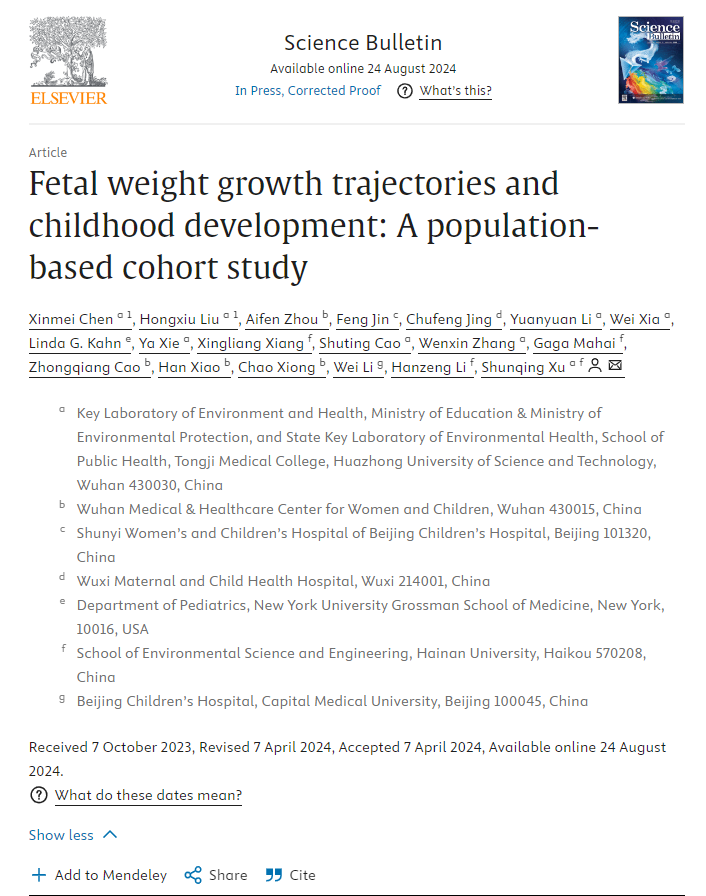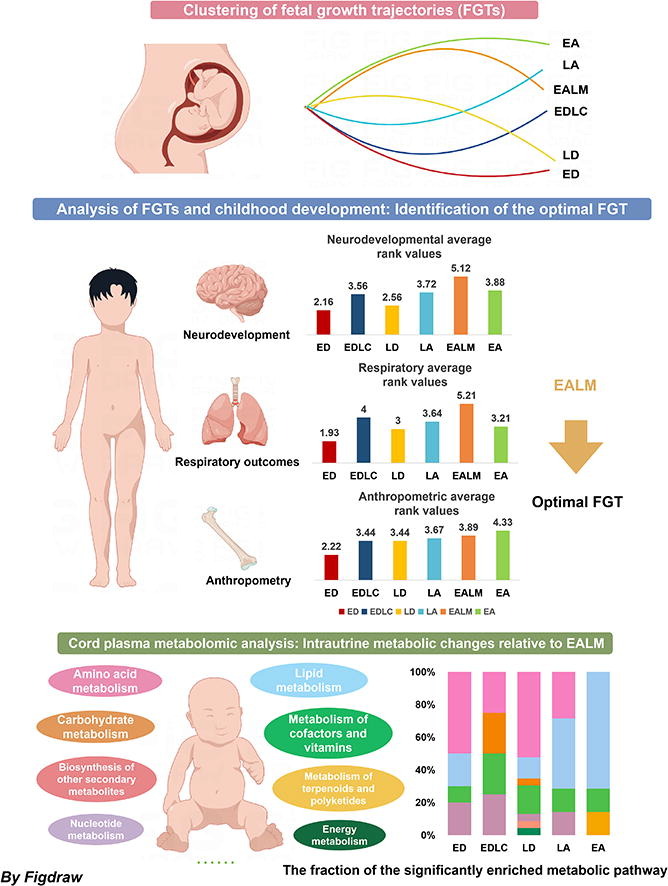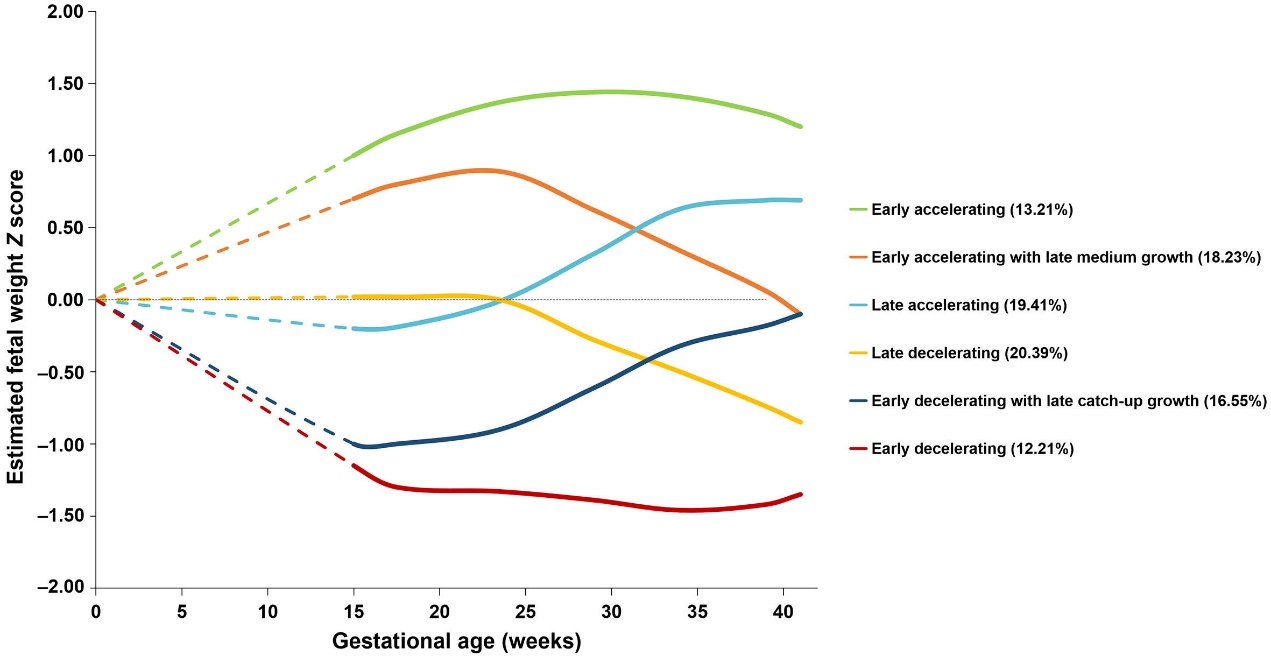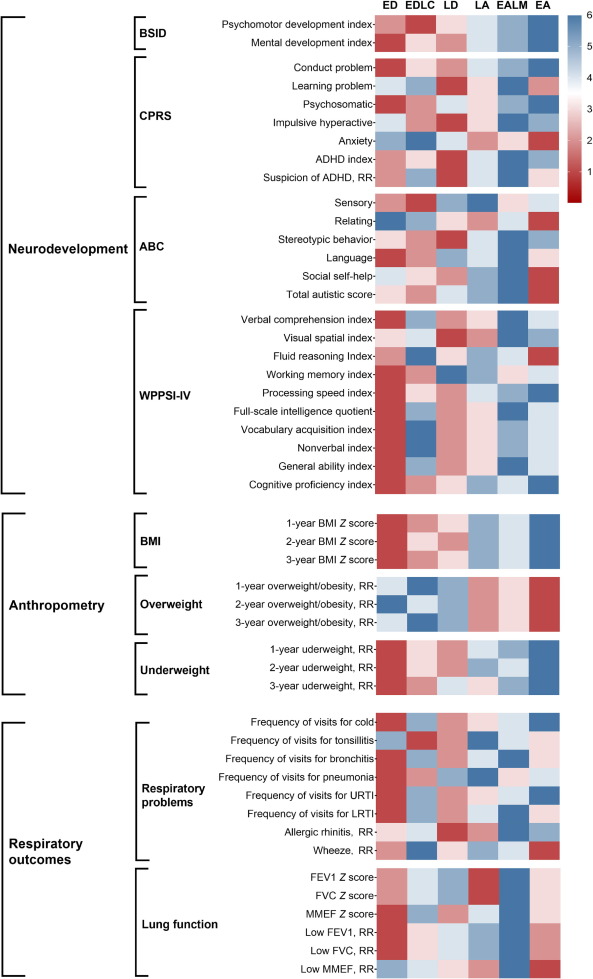
In a recent publication in Science Bulletin, Prof. Shunqing Xu from the Huazhong University of Science and Technology and his team have shed light on the significance of fetal growth trajectories (FGTs) in predicting early childhood development. The study, "Fetal weight growth trajectories and childhood development: A population-based cohort study," meticulously examines a large cohort to establish correlations between FGTs and various health and developmental metrics in the early years of life.

Fig.1 Graphical abstract.
The research identified six distinct FGTs using an unsupervised machine-learning approach, providing a more detailed classification than previous studies. Among these, the early accelerating with late medium growth FGT was found to be associated with improved outcomes in psychomotor development, mental development, and intelligence quotient, as well as better lung function. This suggests that this particular growth pattern may offer a developmental advantage.

Fig.2 Six distinct fetal growth trajectories (FGTs)
Moreover, the study's subgroup analysis of cord blood metabolomics revealed distinct metabolic profiles linked to different FGTs. The early decelerating and late decelerating FGTs were characterized by changes in amino acid metabolism, which could have implications for the child's future health. In contrast, the early accelerating FGT was marked by alterations in lipid metabolism, potentially pointing to an increased risk of conditions such as overweight/obesity later in life.

Fig. 3. Heatmap of associations between fetal growth trajectories and childhood developmental outcomes.
These findings are particularly relevant to the field of prenatal care, where early identification of atypical growth patterns could lead to more targeted interventions. By understanding the metabolic signatures associated with different FGTs, healthcare providers may be better equipped to support optimal fetal development and mitigate potential health risks.
The study's comprehensive approach, combining serial ultrasound data with metabolomics analysis, offers a robust framework for future research. It highlights the importance of considering both growth patterns and metabolic health in assessing fetal development. As the body of evidence grows, so too will our ability to predict and address developmental challenges in early life.
Prof. Xu's study represents a significant contribution to our understanding of fetal growth and its implications for childhood development. While more research is needed to elucidate the mechanisms at play, this work provides a solid foundation for further exploration. It is a reminder of the intricate and complex nature of fetal development and the potential for early life experiences to shape long-term health outcomes. As we continue to unravel the mysteries of fetal growth, studies like these will play a pivotal role in enhancing prenatal care and promoting the well-being of future generations.

